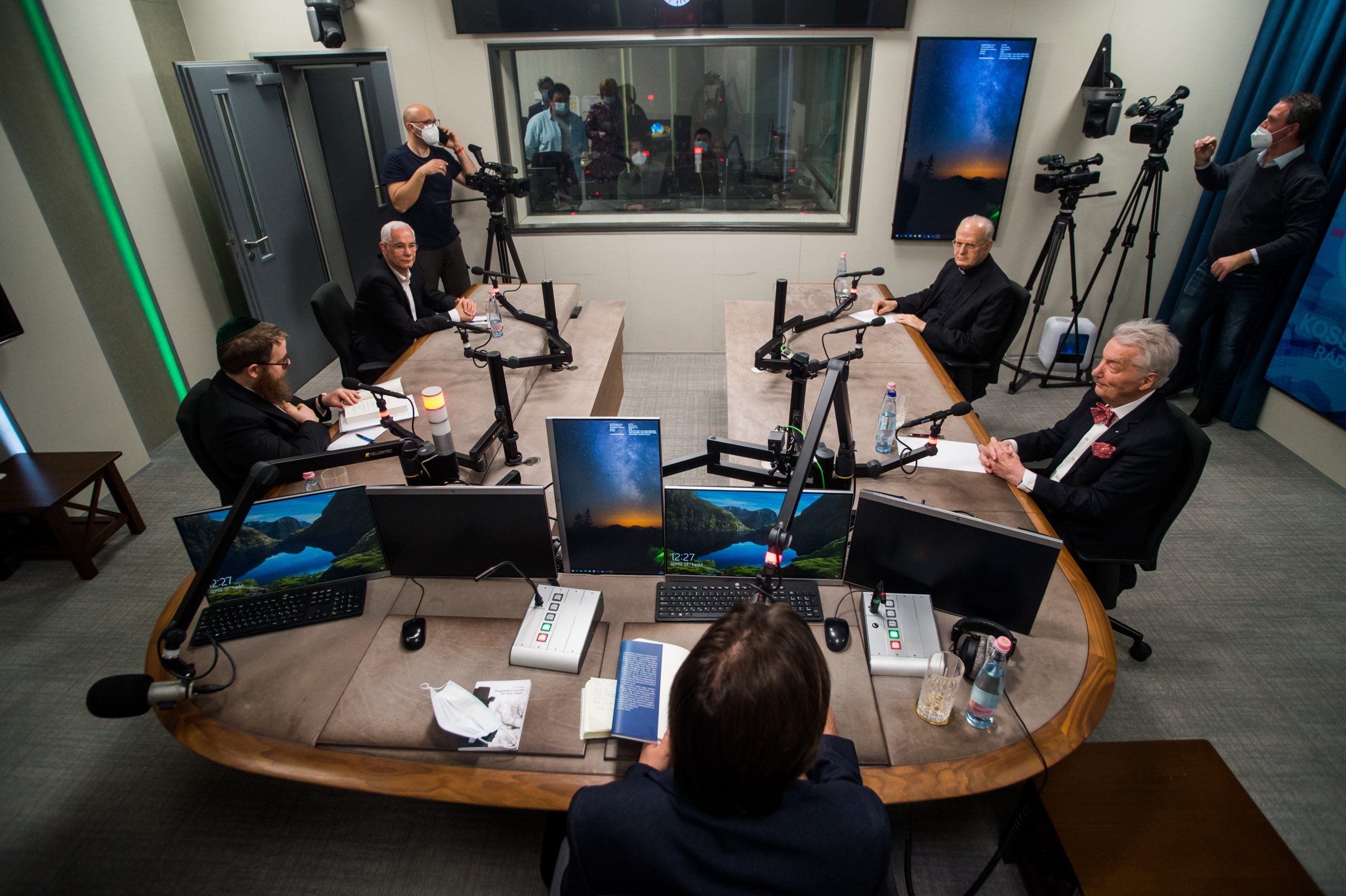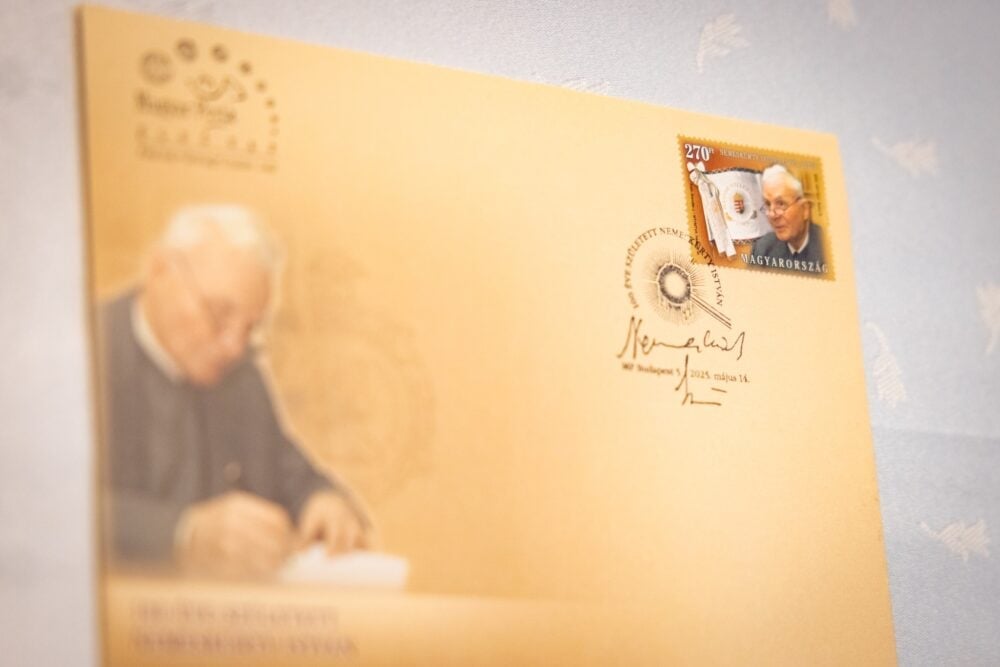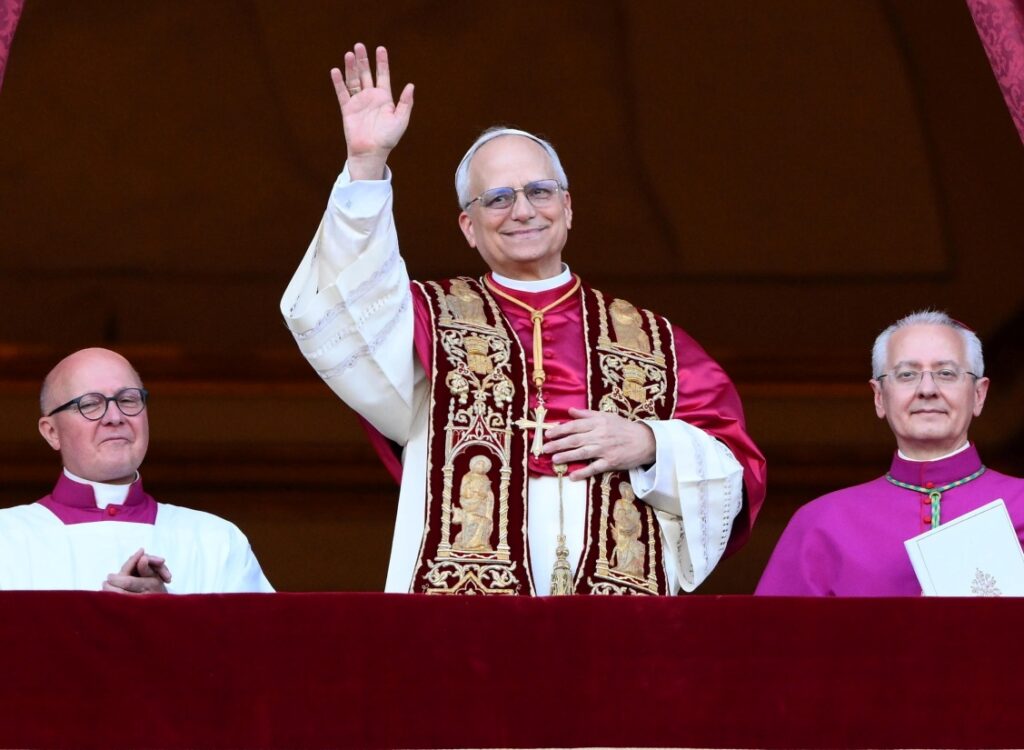Budapest received the great honor for the second time after 1938 that the Holy Father – this time Pope Francis – appointed Budapest as the venue of the 52nd International Eucharistic Congress, originally planned to take place in September 2020. The organizing committee, with the support of Cardinal Péter Erdő, and President of the Republic János Áder, decided to organize an international conference with the title: Faith, Science and Community. However, as the coronavirus pandemic swept through the world in the beginning of 2020, it changed the course of events. The Eucharistic Congress was postponed one year, and the scientific conference was cancelled. Nevertheless, the invited experts of the conference published their studies to make available their ideas and thoughts. Scientists, philosophers and theologians shared their different views and beliefs to all interested. These studies are collected and published in a book, with the title: Faith, Science and Community.
The studies themselves deal with many points of correlation between faith and science, yet they also explain that while faith and science cannot be separated, it is still important to differentiate clearly between the two. Many of the papers cover examples from the history of the Church. Others concern questions of creation, biochemistry, natural sciences and our responsibility for the created world and future generations. Some of the papers are explicitly about the relationship between philosophy and theology. Some studies are theological, dealing with the Eucharist, to be precise. For example, they include the Eucharistic theology of Ottokár Prohászka, or the thoughts of Fichte on the same topic. The memory of Stanley Jaki is dealt with by several authors. The Hungarian-American theologian, who died in 2009, discussed the basic questions of the relationship between natural sciences and faith, and so the articles about him shed light upon certain aspects of this rich subject. Natural scientists and philosophers, theologians from different Christian denominations and also from Judaism can be found among the authors of the book. Many of them are internationally renowned researchers.
The book contains 52 studies, in honor of the 52nd International Eucharistic Congress. Most of the studies are originally written in English or translated to English. The authors of the book are: Alessandro Giostra ∙ Antonio Colombo ∙ Arsenios Kardamakis ∙ Margit Balogh ∙ Zoltán Balog ∙ Gyula Bándi ∙ Péter Bara ∙ László Bernáth ∙ Tamás Biró ∙ Gergely Bognár ∙ István Czakó ∙ András Falus ∙ András Fejérdy ∙ Ida Fröhlich ∙ Botond Gaál ∙ András Gianone ∙ Guillermo Gonzalez ∙ Tamás Hankovszky ∙ Slomó Köves ∙ Balázs Mezei ∙ Michael J. Behe ∙ Michal Chaberek ∙ Norbert Németh ∙ Péter Neumann ∙ Ferenc Patsch ∙ Rafael Pascual ∙ Balázs Schanda ∙ Gábor Schweitzer ∙ Péter Soltész ∙ László Székely ∙ Ferenc Tóth ∙ Zoltán Turgonyi ∙ András Zs. Varga ∙ E. Sylvester Vizi.
Reading these studies, we may dive into topics such as the will of the Creator in the world, the ongoing process of creation and its implications to our lives today. We find interesting aspects to think about whether the existence of God can or cannot be proved in a cognitive way, if we are able to comprehend the essence of the infinite God, and reflect on our perception and faith about God whether He acts in a conscious and rational way. If one would like to ponder over the limits of science and physical discovery, it is interesting to travel in time with the authors – back to Galileo and Darwin – and review how the relationship between faith and natural science developed over the centuries and how it influenced the social order of earlier times and that of today. What are the roots of natural science, and do they collide with the medieval Christian way of thinking? Was religion an obstacle to the rise of sciences or did it support the progress of research? Two studies take a deep-dive into these topics.
The more we learn about the world in a scientific way, the more we are convinced that the world is open to the transcendent, which is discussed in one inspiring study in the book. However, in another study, we find that there are other conclusions – in fact there is a shift in our worldview from rational creation to philosophical agnosticism, despite the clarity of divine revelation. Is there a planned reasonableness of the world? We have good reasons to believe so – this is explained clearly in one of the papers.
The subjects are not limited to philosophy and faith though – many studies cover legal and social aspects – issues related to the life of our societies that stem from the world being rooted in the transcendent reality. Having said that, we get to the subject of God’s providence, our free will and human responsibility, implications on secular law, topics that are also discussed in the book with a profound scientific approach. These thoughts and questions are by no means limited to the Catholic Church, so authors shed light on many different approaches representing viewpoints from the Protestant, Jewish, Orthodox and Islamic religions.
The writings collected in the book, edited by E. Sylvester Vizi and Tamás Freund, “convincingly show that the subject of the Eucharist is a fresh spring even today, and suitable for raising a discussion between believers and non-believers and the representatives of other different religions” – according to Cardinal Péter Erdő.
The book was published by Szent István Társulat in 2021, and is available in their book store.
Featured photo illustration by Imre Földi/MTI


